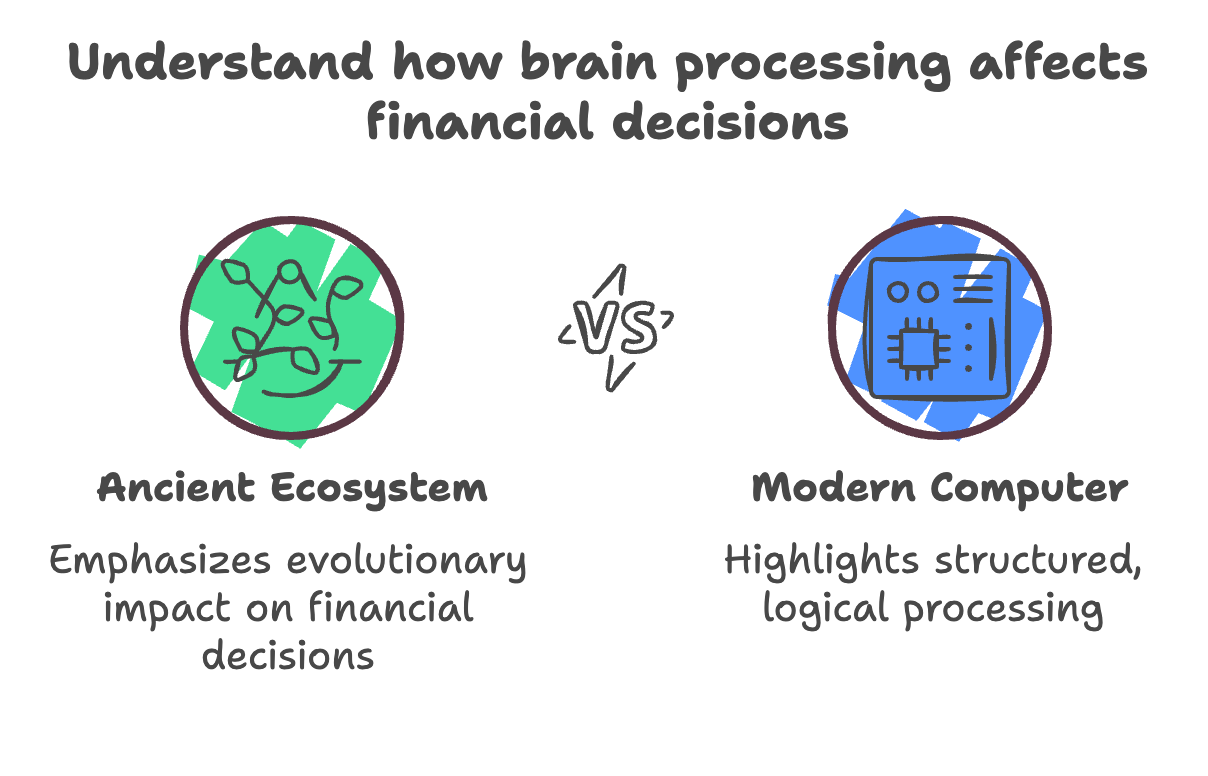Discover Why Willpower Fails Your Money Goals Every Single Time
It's literally the "snake oil salesman" of self-help
The more I’ve learned about the brain through neuroscience, the more things like “willpower” start to feel like a sham.
I was right. 😉
Here’s a little history on “willpower” (which I will forever read in quotes from now on).
The idea of willpower as a path to success emerged largely from Victorian-era moral ideals rather than genuine scientific insight—truly "morality dressed as science."
In the late 1800s, willpower became a moral measuring stick: if you overspent, procrastinated, or indulged too much, society labeled you weak or undisciplined.
Later, mid-20th-century psychology experiments, like Walter Mischel’s famous "marshmallow test," seemed to validate willpower scientifically.
However, more recent neuroscience reveals these early ideas were oversimplified at best. Modern research shows our brains rely heavily on deeply ingrained neural pathways, habits, and emotional triggers—not vague, judgment-laden ideas like "self-control."
In other words, willpower alone is the snake oil salesman of self-help: flashy promises and morally charged messages but lacking substance.
Lasting change comes not from moral judgment but from understanding and reshaping the brain's neural pathways.
I've been diving deep into this intersection during my Money Coaching certification. I want to share what I'm learning in a way that makes sense without requiring a neuroscience degree.
The Architecture of Your Money Brain
Think of your brain not as a single unit but as an intricate ecosystem that has evolved over millions of years. This evolution matters tremendously when it comes to money.
Our brains process financial decisions less like a modern computer and more like layers of ancient software running simultaneously—sometimes harmoniously, sometimes in conflict.
Neural Pathways - The Money Highways in Your Mind
Here's where it gets fascinating: every time you have an experience with money, your brain creates actual physical connections between neurons—think of them as little roads that your thoughts and feelings travel along.
The scientific term is "neural pathways."
When my mom stressed about a bill or expressed joy in giving gifts, my young brain was busy building highways that would determine how I'd respond to similar situations decades later.
The more often we have a particular experience or thought, the stronger and broader that neural highway becomes. It's like a path through a meadow—walk it once, and you barely leave a trace. Walk it daily for years, and you create a clear, easy-to-follow trail. 🤯
This is why our money patterns can feel so automatic and difficult to change. We're literally following well-worn paths in our brains.
Money Memories - Emotional Imprints That Last a Lifetime
It’s particularly powerful how early money experiences are coded into our emotional memory systems.
The amygdala—a small almond-shaped structure deep in the brain—attaches emotional significance to experiences, especially those involving safety or danger.
If you experienced financial insecurity as a child, your amygdala may have tagged "money uncertainty" as a threat. Even decades later, when you're financially stable, situations that trigger similar feelings can activate that same threat response.
A common emotion with money is shame. If you experienced shame as a child around money (how you spent it, did or didn’t save it, etc.), even if you’re financially in a good place, someone else might say something that triggers the emotion of shame, and you’re instantly transported back to how you felt as a child.
Your body has the same physical response as the first time you experienced that emotion.
The Neurochemistry of Financial Decisions
Our brains are awash in chemicals that influence how we feel and act around money:
Dopamine: The famous "reward" chemical that makes shopping feel good. Marketers know this well—that's why "limited-time offers" and flash sales are so effective. They trigger dopamine spikes that can override rational thinking.
Cortisol: The stress hormone that floods your system when you check your bank account and see less than expected. Too much cortisol impairs decision-making (keeping us stuck in a cycle that doesn’t serve us).
Oxytocin: The "bonding" hormone that influences how we use money in relationships—like spending extravagantly on gifts for loved ones, even when it's not financially wise.
These chemicals don't just influence our feelings—they shape our decisions, often without conscious awareness.
Neuroplasticity - Your Brain's Superpower
Here's the hopeful part of all of this: our brains have remarkable adaptability, known as neuroplasticity.
This means that no matter how entrenched our money patterns seem, we can create new neural pathways throughout our entire lives (i.e., it’s never too late).
When I finally addressed things with my therapist—after years of keeping secrets out of shame—it was the beginning of creating a new neural pathway around money and self-worth. Each time I practice self-compassion about my financial history, I strengthen an alternative route in my brain (a new path through the meadow, so to speak).
Why Willpower Isn't Enough
Understanding neuroplasticity explains why sheer willpower isn't sufficient for changing money habits. When we rely solely on willpower, we ask the newer, less developed parts of our brain to override deeply established neural pathways—it's an exhausting uphill battle.
Instead, lasting change comes from:
Awareness: Recognizing which neural pathways are active in financial situations
Repetition: Consistently practicing new thought patterns and behaviors
Emotional engagement: Attaching positive feelings to new money behaviors
Environmental design: Creating surroundings that support new neural pathways
This framework doesn't just apply to finances—it's how all lasting change happens in our brains.
A Simple Practice to Try
If you're curious about your own money neural pathways, try this gentle exercise:
The next time you're about to make a financial decision—whether it's checking your bank account, making a purchase, or discussing money with someone—pause and notice:
What physical sensations arise in your body?
What thoughts automatically come to mind?
What emotions surface?
Don't judge whatever comes up—just observe it with curiosity.
This awareness is the first step in understanding which neural pathways are most active in your financial life.
In this week's newsletter, I'll share more about how we can consciously create new money pathways in our brains using practical neuroscience techniques. Until then, I'd love to hear what you notice about your reactions and responses to money.
Remember, understanding your brain's relationship with money isn't about finding what's "wrong" with you—it's about compassionately recognizing the brilliant ways your brain tried to keep you safe and secure, even when the wiring got a little tangled along the way.








Reading this and other of your posts has lit me up in my multi-year fascination with—and writing about—Connection. It started by identifying what, for me are my life’s four essential Connections: with God, with Self, with Others, and with Nature. I saw these, at first, as four legs of table. But as I’ve studied and read and lived, I realize they’re concentric circles with arrows flowing in both directions between them. In other words, the connections are connected. Now, you are making it clear to me that connection shows up in so many other ways too, such as the connection between early experiences with money and current behavior. And when you listed Awareness as the first step towards making peace with your financial behavior, I recognized this immediately as Connection with Self — self-awareness, self-knowledge. So important! Keep up this excellent series.
Lasting change comes not from moral judgment but from understanding and reshaping the brain's neural pathways.
This part. Thank you for saying the quiet parts out loud.